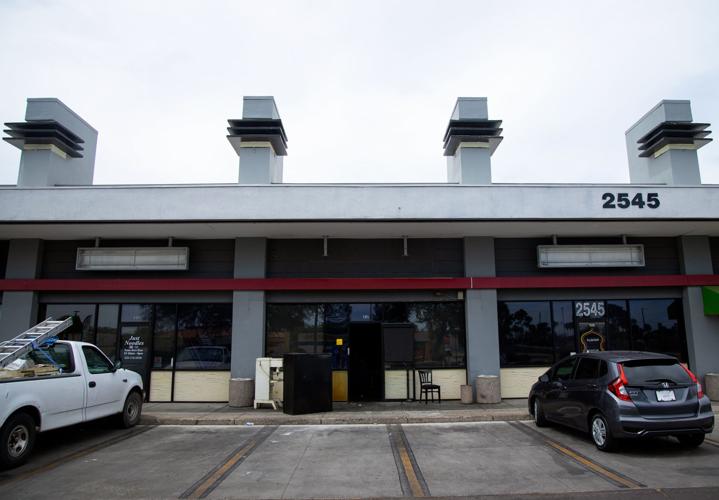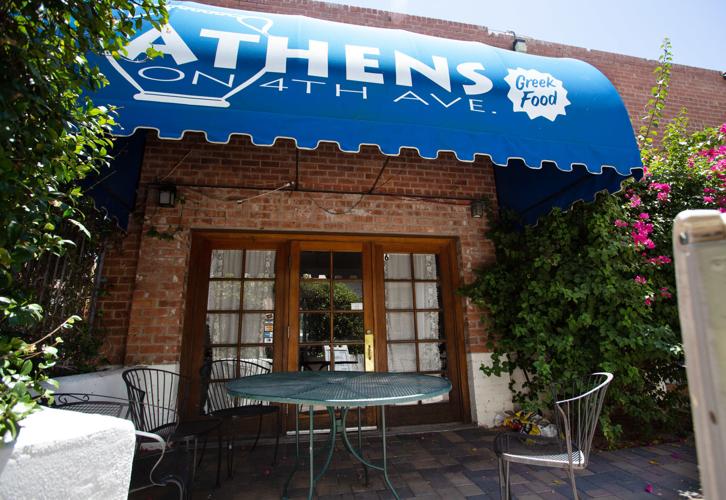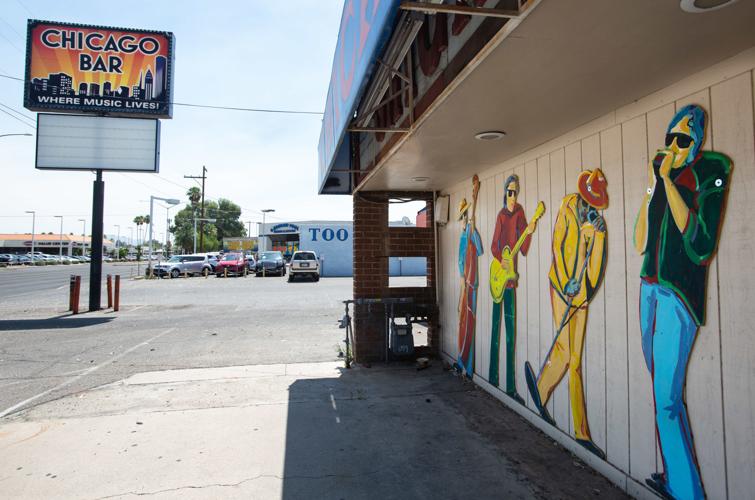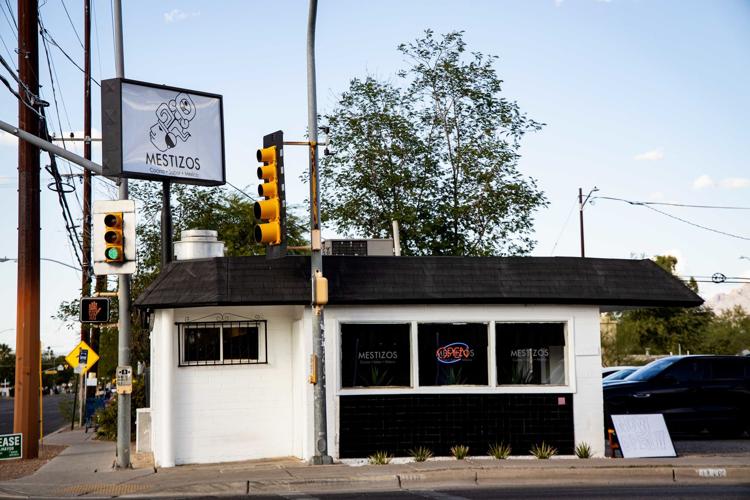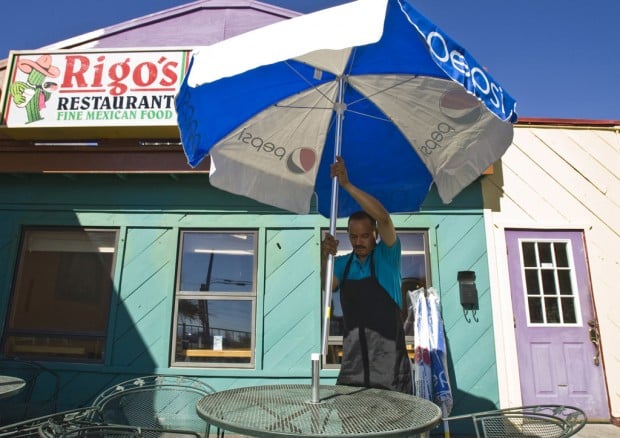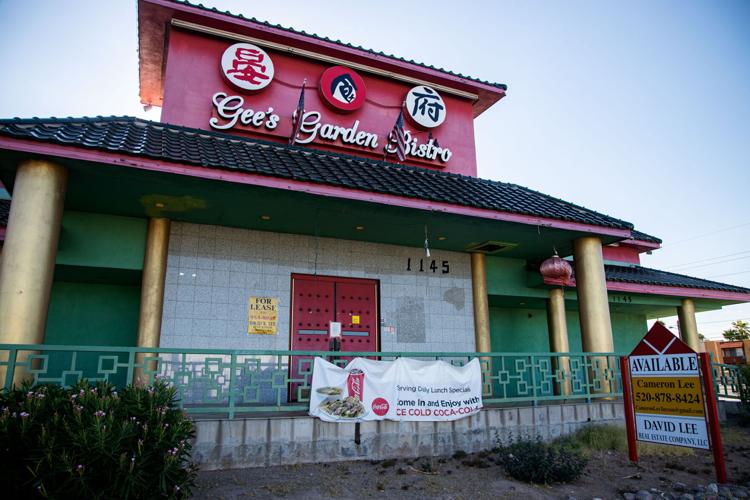Summer is typically not a good time for restaurants in Tucson. But the coronavirus pandemic has redefined the concept of a "slow season." Monthslong quarantines, coupled with a general lack of consumer confidence have left independent restaurants hanging by a thread.
"Unless there’s action from a state and federal level in the next three months, I’d imagine there will be an absolute tidal wave of restaurants going out of business," says bartender Aaron DeFeo, co-owner of the buzzworthy Little Rituals bar in downtown Phoenix. Since the bar closed temporarily in March, the former Tucsonan has been pouring more of his time into restaurant advocacy work for a group called Thirst, which is lobbying lawmakers to hold insurance companies accountable for business interruption claims.
DeFeo thinks the current system is setting local businesses up for failure. When the $600 unemployment assistance boost ends July 31, more businesses are going to be forced to open back up to support their employees. And they will not be able to survive the hit, he said.
"We should not be putting our bars and restaurants in this position, where they’re forced to open in positions that will bankrupt them," he said. "It’s an impossible choice. Do you let your business dissolve, or do you fight for it? But fighting for it in this climate is potentially putting people at risk."
That's why DeFeo thinks that buying takeout, while helpful, isn't going to entirely solve the problem. The restaurant industry needs major legislation to stop a disaster. Here are some specific action items you can do to help:
- Check out the website for the Arizona Small Restaurant Coalition. This group is lobbying at the state level to create a restaurant stabilization plan to provide financial relief, eviction protection and more. Restaurant owners can also sign an open letter to Senator Krysten Sinema.
- At the national level, the Independent Restaurant Coalition is lobbying Congress to pass the Restaurants Act, which would establish a $120 billion Independent Restaurant Revitalization Fund. Members of the public can learn more about this organization at its website, and even send their local representative an email.
- Check out Thirst's website and find out more about becoming a community organizer for Tucson. This grassroots organization is trying to make COVID-19 a valid claim for business interruption insurance, which would require insurance companies to pay out to local restaurants. If you're interested in more information, contact DeFeo at aaron@littleritualsbar.com.
"It’s not an either/or proposition. People should do all of these things," DeFeo said.
Keep this resource bookmarked because knowledge is power. Below you'll see a list of every local restaurant that has made it public that they are permanently shutting down. Have I missed one? Email me at aberlin@tucson.com.
Alibaba Mediterranean

Alibaba Mediterranean was a casual spot for falafel plates and more at 2545 E. Speedway.
Alibaba was the go-to spot in the campus area for Persian and Middle Eastern staples like falafel, meat kabobs and unique items like sabzi beef stew. They also had a substantial vegetarian menu, which made them popular with the student crowd. They shut their doors in June, emptying out their space and taking down the colorful sign in front. Read more.
Athens on 4th Ave.

at 5951 E. Speedway Last June, the owner of Athens on 4th at North Fourth Avenue and East University Boulevard threw in the towel. Owner Andreas Delfakis said it was impossible to continue under the strict COVID restrictions that limited capacity at his 27-year-old restaurant.
Owner Andreas Delfakis closed his doors June 20 after almost three decades of business. Athens on 4th Ave. was once one of Tucson's most popular upscale restaurants, but had suffered a series of blows including prolonged construction during the development of the Fourth Avenue Streetcar. Athens was known for its Greek specialties, like moussaka and flaming saganaki. Read more.
Bianchi's in Marana

Bianchi’s owner Vincent Bianchi said the Marana restaurant, above, was picking up steam after years of struggle, but “we cannot overcome COVID-19.”
The second location of the popular westside Italian restaurant was inside a 7,000-square foot building that was most recently home to a steakhouse. Bianchi's Marana outpost was doing well up until the pandemic started, but then it all ground to a halt. "It's such a beautiful building. It’s just not meant to be a pickup and delivery place," said owner Vincent Bianchi in a recent Arizona Daily Star article. "It’s not what anybody wanted. One day you're jamming and then nothing.” He closed his doors March 31. Read more.
Chicago Bar

The owners of Chicago Bar, a fixture for Tucson blues fans and musicians alike since 1978, announced the closure on Facebook, saying the financial burden of being mostly closed since March 17 took an irreversible toll.
Chicago Bar had been a staple in the local music scene since 1978, and had hosted countless blues concerts, reggae dance parties and karaoke sessions. But the business wasn't able to survive being mostly closed for several months when the pandemic hit in March. Owners posted on Facebook in late June that they would not be reopening. Read more.
Gee's Garden

Gee's Garden has been at the center of Tucson's dim sum culture for several decades.
Gee's Garden was the first Chinese buffet in the state of Arizona when it opened in 1975, said owner Joan Gee. But the restaurant was most popular for its traditional dim sum service, which it started in 1995. The restaurant was forced to close in June after the new owner Eddie Lau fell behind on rent. Read more.
Mestizos

Mestizos is located in the former Manna from Heaven space at St. Mary's and Grande.
This contemporary Mexican restaurant opened in a small building on St. Mary's Road and Grande last November. The business wasn't open long enough to gain the momentum, and on April 2 the owners posted on Facebook that they were closing. Fortunately, you can still visit their sister restaurant Machi in Nogales, Arizona.
Rigo’s on Oracle

Owner Rigoberto Lopez knows others have expanded from the south side and downtown with mixed success, but conversations with customers convinced him the site at 5851 N. Oracle Road, above, is a good idea.
A sign of new eating trends brought on by the pandemic, the southside icon Rigo's was forced to close its second location on Oracle Road. Rigo's is known for its daily all-you-can-eat buffet, which just didn't work during the time of COVID. The owners announced they were closing May 15, after almost 10 years at that location. "Lots of great memories have been made. We hope to see you, and continue to be make even more memories in our south location and Benson location," reads the Facebook post.


